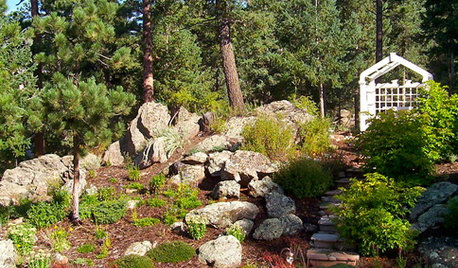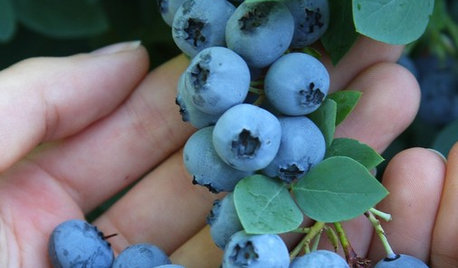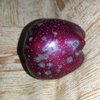Lowering pH for Blueberries using Muratic Acid (nitric acid)
nugent
13 years ago
Related Stories

GARDENING GUIDESHave Acidic Soil in Your Yard? Learn to Love Gardening Anyway
Look to acid-loving plants, like conifers and rhododendrons, to help your low-pH garden thrive
Full Story
EDIBLE GARDENSSummer Crop: How to Grow Blueberries
Plant blueberries in spring or fall for garden beauty through three seasons — and a sweet superfood in summer
Full Story
GARDENING GUIDESGrow a Beautiful Garden in Alkaline Soil
Got alkaline soil? Learn how to manage it and the many beautiful plants that will thrive in this ‘sweet’ soil
Full Story
FALL GARDENING5 Ways to Put Fall Leaves to Work in Your Garden
Improve your soil and yard the organic way with a valuable garden booster that grows on trees
Full Story
GARDENING GUIDESGarden Myths to Debunk as You Dig This Fall and Rest Over Winter
Termites hate wood mulch, don’t amend soil for trees, avoid gravel in planters — and more nuggets of garden wisdom
Full Story
EDIBLE GARDENSHow to Grow Your Own Sweet Summer Crops
This guide will help any gardener get started on growing the freshest warm-season veggies and berries for summer
Full StoryMore Discussions







fruitnut Z7 4500ft SW TX
marknmt
Related Professionals
Arlington Landscape Architects & Landscape Designers · Brentwood Landscape Contractors · Wake Forest Landscape Contractors · Amesbury Landscape Contractors · Damascus Landscape Contractors · Hendersonville Landscape Contractors · Hoover Landscape Contractors · Lake Zurich Landscape Contractors · Lancaster Landscape Contractors · Leicester Landscape Contractors · Red Oak Landscape Contractors · Roseville Landscape Contractors · Tinton Falls Landscape Contractors · Waldorf Landscape Contractors · Antioch Landscape Contractorsthisisme
olpea
marknmt
tims
john_in_sc
gonebananas_gw
mrtexas
softmentor
Michael
gonebananas_gw
marknmt